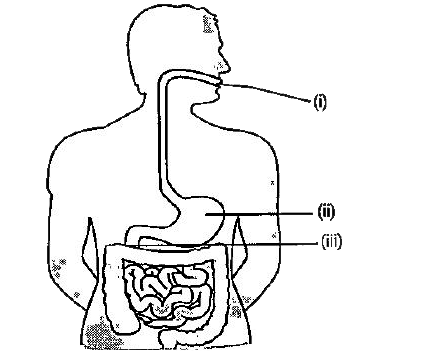In the case of Antirrhinum sp. The recessive trait is seen in progenies due to the
(i) The normal enzyme
(ii) Less-efficient enzyme
(iii) Non-functional enzyme
(iv) No enzyme at all
ii, iii
iii, iv
i, iii
i, ii
The correct Answer is:B
Explanation of the concept of dominance:
Every gene, contains the information to express a particular trait. In a diploid organism, there are two copies of each gene, i.e. as a pair of alleles.
Now, these two alleles need not always be indentical, as in a heterozygote. One of them may be different due to some changes that it has undegone which modifies the information that particular allele contains.
Let's take an example of a gene that contains the information for producing and enzyme. Now there are two copies of this gene, the two allelic forms.
Let us assume (as is more common) that the normal allele produces the normal anzyme that is needed for the transformation of a substrate S.
Theoretically, the modified allele could be responsible for production of :
the normal/less efficient enzyme, or
a non-functional enzyme, or
no enzyme at all
In the first case, the modified allele is equivalent to the unmodified allele, i.e. it will produce the same phenotype/trait, i.e. result in the transformation of substrate S. such equivalent allele pairs are very common.
But, if the allele produces a non-functional enzyme or no enzyme, the phenotype may be effected.
The phenotype/trait will only be dependent on the functioning of the unmodified allele.
The unmodified (functioning) allele, which represents the original phenotype is the dominant allele and the modified allele is generally the recessive allele.
Hence, in the example above the recessive trait is seen due to non-functional enzyme or because no enzyme is produced.
Topper's Solved these Questions
- BOOK - A2ZCHAPTER - PRINCIPLES OF INHERITANCE AND VARIATIONEXERCISE - Section A (topic 3: Inheritance Of Two Genes) Law Of Independent Assortment, Chromosomal Theory Of I55videos
PRINCIPLES OF INHERITANCE AND VARIATION
- BOOK - A2ZCHAPTER - PRINCIPLES OF INHERITANCE AND VARIATIONEXERCISE - SECTION A (TOPIC 3: INHERITANCE OF TWO GENES3videos
PRINCIPLES OF INHERITANCE AND VARIATION
- BOOK - A2ZCHAPTER - ORGANISMS AND POPULATIONS EXERCISE - Section D: Chapter-end Test50videos
ORGANISMS AND POPULATIONS
- BOOK - A2ZCHAPTER - REPRODUCTIVE HEALTHEXERCISE - Section D: Chapter-end Test50videos
REPRODUCTIVE HEALTH
Similar Questions
Knowledge Check
- Question 1 - Select One
Theoretically, the modified allele could be responsible for the production of
l. the normal / less efficient enzyme
II. a non-functional enzyme
III, no enzyme at allAland Il are correctBl and Ill are correctCI, II and III are correctDII and III are correct - Question 2 - Select One
The phenotype of an individual may be affected in the modified allele produces
(a) No enzyme at all
(b) The normal enzyme
(c) A non-functional enzymeAOnly a is correctBa and c are correctCb and c are correctDOnly c is correct - Question 3 - Select One
Theoretically, the modified allele could be responsible for the production of A. a non functional enzyme B. normal or less effecient enzyme C. No enzyme at all
AA onlyBA & B onlyCB onlyDA,B and C
The protein part of enzyme is known as
Or
The enzyme which combines with non-protein part to form a functional enzyme known asView SolutionAssertion :-The unmodified allele, which represents the orginal phenotype is the dominant allele and the modified allele is generally the recessive allele.
Reason :- The modified allele could be responsible for production of a non functional enzyme or no enzyme at al.View SolutionA metal ion required for normal functioning of an enzyme is
View SolutionIdentify the option that indicates the correct enzyme that is secrethed in location (i), (ii) and (iii)
 View Solution
View SolutionA metal ion required for normal functioning of an enzymes is
View Solution
